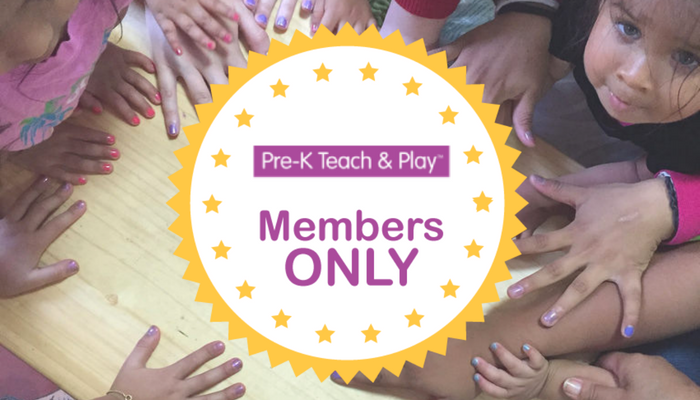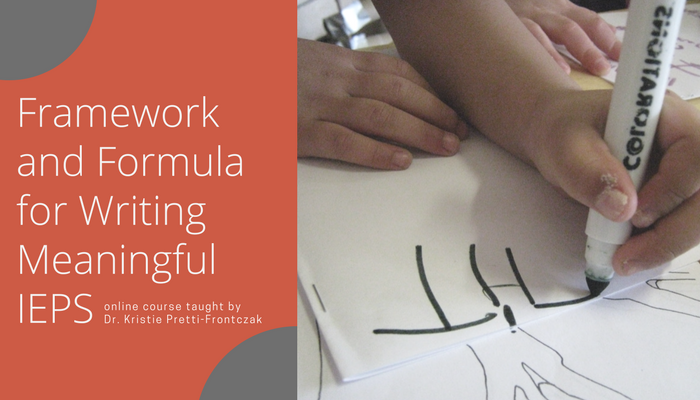Writing Legally Defensible, Rigorous, and Functional IEP Goals in Early Childhood
Facilitated by Dr. Kristie Pretti-Frontczak and hosted by Grant Wood AEA
Almost there: Please enter your valid email and click the button below to receive all the handouts
Complete Your Details Below To Access All Of The Handouts
Watch for an immediate email from Kristie@Kristiepf.com. You may need to whitelist and/or otherwise ensure it is not blocked by your agency/district.
Scroll down to review all of the IEP solutions, resources, and handouts
Here's how to make the most of the professional development and learning opportunity!
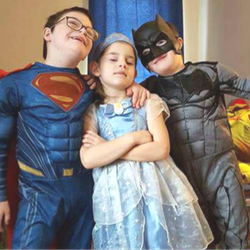
Before
Explore the materials, and begin thinking about your strengths (we sometimes call these your superpowers) when it comes to writing IEPs.
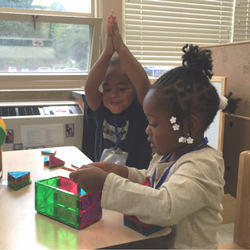
During
Engage in self-reflection, work collaboratively with colleagues, aim to be curious about tensions that arise, and make notes of actionable steps.
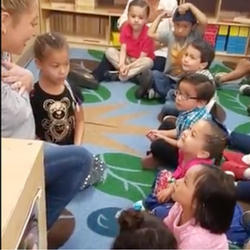
After
Put the key principles discussed into practice, reach out when you get stuck, share your successes along the way, and return here to continue learning together.
Group Coaching

Purpose
Opportunity for individuals or a team to bring issues forward, to be guided toward answers and clarity, and to engage in reflective practices.
Sessions are collaborative conversations where ideas and resources are explored, and solutions are identified. The intent it not to provide new or additional content, but rather, to revisit existing content and/or revisit key principles and practices shared during the f2f gathering.
Provide extended opportunities for action planning and discussions regarding how previously shared content (e.g., strategies, ideas, practices) can be implemented, how the content needs modified for a particular situation, and how to problem-solve around barriers.
Dates & Times
• April 25th or 27th (Wednesday/Friday)
All sessions are from 3:30-4:30 CT via Zoom (need Internet, webcam, and speakers)
Attend one from each paired date, and attend across all or some of the pairings
Don't need to have attended in August to benefit from the group coaching
Coaching Session 1 Archived Resources
Explore more about PLAAFPs
• Watch a lesson on writing high quality PLAAFPs (and/or evaluation reports) [link to YouTube video] - or you can listen [link to audio file] - or you can read [link to pdf transcript]
• Explore how to translate what you learn about PLAAFPs (above) onto your state forms [click here to listen to an audio file with more about the different decisions we make for eligibility vs. writing IEPs]
Articles about the relationship between symbolic play, cognition, and communication development [article 1] [article 2] [article 3]

Coaching Session 2 Archived Resources
December 4th Recording [link]; December 7th Recording [audio only]
Harvard's Center on the Developing Child [website]
Core concepts in the science of early childhood development [pdf]
If only I had a crystal ball [blog] post contains links to developmental milestone resources
Social reciprocity [vlog]
Podcast 26 episode about sequences [podcast]
Engagement discussion [audio]
• The IEP worthy place to begin would be "initiates and maintains interaction with familiar adults" and “participating in established social routines".
• Both of these will allow the team to think about their expectations for each and every part of the day as well as what they can do to engage in “serve and return” with the child.
Five numbers to remember about early childhood development [link] - see #3 about risk factors. Pay close attention to the graph with the source of Barth et al. Here is the full article provided by the Center on the Developing Child, long with the following highlights from the article.
Children ages birth to 36 months who have been maltreated are at substantial risk of experiencing subsequent developmental problems. Specific domains potentially affected include cognitive, social, emotional, and physical health in addition to the potential for subsequent development of psychopathology. Moreover, negative developmental effects are typically seen in at least one domain regardless of the type of maltreatment experienced. Effects are similar to poverty, but may be more severe.
Specific risk factors that were examined are shown below, with the percentage of children with that risk factor in parentheses: Child Maltreatment (100%) Caregiver Mental Health Problem (30%) Minority Status (58%) Low Caregiver Education (29%) Single Caregiver (48%) Biomedical Risk Condition (22%) Poverty (46%) Teen-aged Caregiver (19%) Domestic Violence (40%) 4 or More Children in Home (14%) Caregiver Substance Abuse (39%)
Young children from birth to three years of age are most at risk of experiencing maltreatment. Children birth to three years have the highest rate of victimization, 16.1 per 1,000.
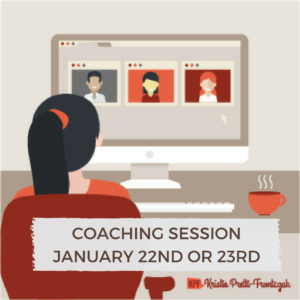
Coaching Session 3 Archived Resources
• January 22nd recording [link] January 23rd recording [link]
• Social reciprocity vlog by Barb Avila [link]
• AEPS related items: Birth to Three Social Area Strand A Goal 3 and Strand C Goal 2; Three to Six Social-Communication Area Strand A Goals 2 and 3
• SCERTS related items: Conversational Partner Stage JA 4 and 5 items, and SU 4 and 6 items
• IEP online course objectives [pdf]
• R-GORI [pdf]
• IEP Makeover eBook [pdf]
Coaching Session 5 Archived Resources
• April 25 recording [link] April 27 (will be rescheduled)
• Making Pre-K Better video [link] can follow along with the PPT handout and/or X Marks the Spot handout
• Paring outcomes with instruction [video]
• Audio about task analysis and amount of assistance provided (from a new module I'm working on for the IEP online course) [audio]
• Google Drive resource where we have been unpacking social-reciprocity and how to measure a child's performance over time [link]
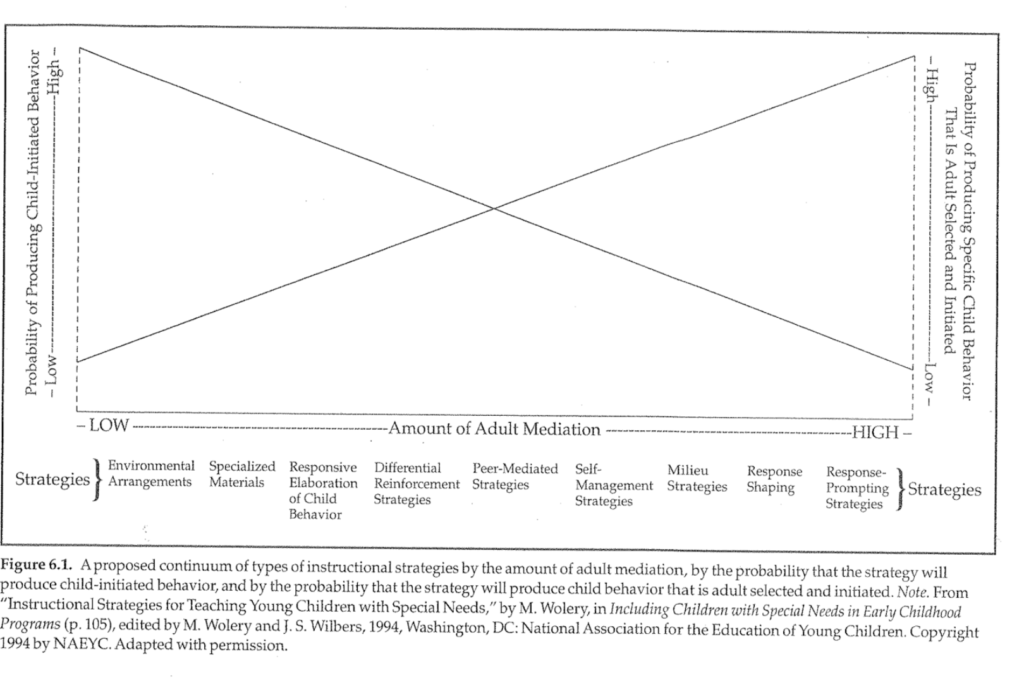
Coaching Session 4 Archived Resources
• March 5th session (link to video recording)
• Self-regulation assessment rubric [pdf]
• Writing rubric [pdf]
• Stewart Shanker's Self-Regulation Toolkit (contains examples of stressors) [link]
• Big Ideas for Early Learning Glossary™ (updated/color) [link to shop] bulk rates available
• Big Ideas for Early Learning Glossary ™ (Ohio free version)
• Sample of Big Ideas for Early Learning Glossary™ [pdf]
• Social Reciprocity case example [pdf]
• Reach for the Stars (maps for getting better information from families) [podcast]
• ELL resources (anything by Linda Espinosa) [e.g., link]
• March 6th session (link to video recording)
Printed Handouts
Websites & Videos
• IFSP/IEP Superpowers Quiz [link]
• Request the IEP Makeover Tips and Tools eBook [link]
• Free Pre-K Teach & Play IEP Toolkit [link]
• Power Packs App [link]
• What Is IEP Worthy? [video]
• Starting With What [video]
• ECTA Center - RTI in EC [link] (e.g., OSEP letter)
• Center on the Developing Child - Harvard [link]
• Childcare Bar and Grill podcast [link]
• Self-Reg Steward Shanker [link]
• Whole Brain Child [link]
Blogs & Podcasts
• A Rebel With A Cause [blog]
• 3 Tips For Writing Defensible IEPs [blog]
• Progress Versus Performance: Why The Words We Use Matter [blog]
• Reducing Children’s Exposure to Stress One Zigzag At a Time [blog]
• How To Pinpoint Why A Child Is Struggling [blog]
• If I had a Crystal Ball [blog]
• What Children Really Need [podcast]
• Interview with Janis Fialka [podcast]
• A Map To The Stars [podcast]
• What Would Sherlock Do [podcast]
• What Comes Before Counting [podcast]
• Seven Developmental Progressions [podcast]
Want all the handouts?
You can bookmark this landing page; however, many participants prefer to complete the quick form and receive links to all the handouts via email. If you sign up, watch for an immediate email from Kristie@Kristiepf.com. You may need to whitelist and/or otherwise ensure it is not blocked by your agency/district.
We value your privacy and would never spam you





